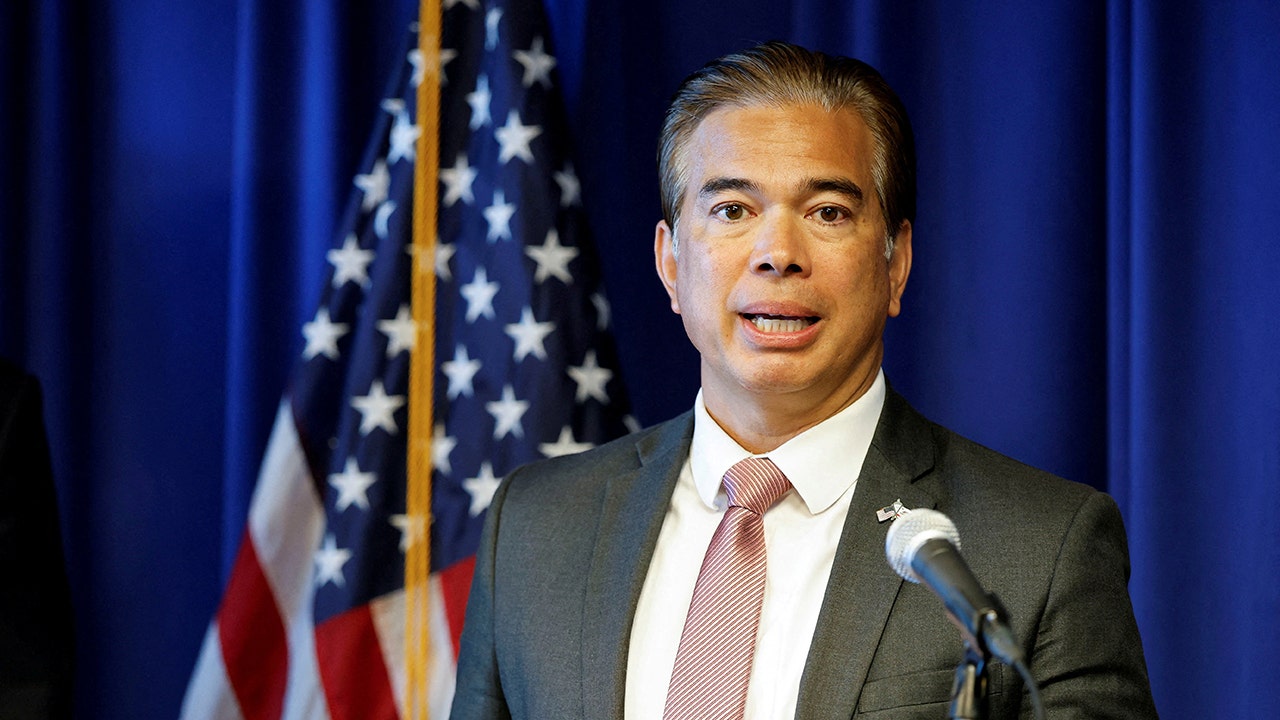U.S. Magistrate Judge Barbara Holmes is under scrutiny following her decision to release Kilmar Abrego Garcia, a Salvadoran national accused of human trafficking and suspected of MS-13 gang ties.
The ruling came Friday, when Holmes rejected a government request to keep Abrego Garcia in federal custody ahead of trial.
Abrego Garcia was initially arrested in 2022 in Tennessee while driving a vehicle registered to a convicted human trafficker, flagged by the Department of Homeland Security.
Trump’s Sovereign Wealth Fund: What Could It Mean For Your Money?
Several illegal aliens from South and Central America were passengers in the vehicle at the time. According to court filings, Abrego Garcia, who resides in Maryland, told authorities he was transporting the individuals from Houston, Texas, to Maryland for work.
The case drew further attention during a June hearing, when Judge Holmes sustained an objection limiting witness testimony about Abrego Garcia’s alleged sexual relationships with women, including minors, who were reportedly among those he was helping to smuggle into the United States.
LAWFARE: MS-13 human trafficker released without bail despite beating his wife and being present in the US illegally. pic.twitter.com/7vjmF4SKUD
— @amuse (@amuse) August 22, 2025
This Could Be the Most Important Video Gun Owners Watch All Year
[esi random_video_player ttl=”0″]
The decision to release Abrego Garcia has placed Judge Holmes’ background and affiliations under renewed scrutiny.
According to Breitbart News, campaign finance records show that between 1993 and 2007 she contributed $750 to Democratic candidates, including $250 to Hillary Clinton’s 2008 presidential campaign.
Holmes has a lengthy record of professional involvement in legal organizations.
She was president of the Nashville Bar Association in 2002 and served multiple terms on its board of directors.
After her appointment as magistrate judge in 2015, she continued to play a role in legal associations, including serving as Judges Chair for the Legal Aid Society’s 2018 Campaign for Equal Justice.
The Legal Aid Society, particularly its New York branch, has promoted diversity, equity, and inclusion programs and provided legal representation for illegal aliens.
The group once featured a webpage highlighting its commitment to “fighting for racial equality,” alongside imagery from the George Floyd protests.
In October 2021, Holmes organized the National Association of Women Judges’ 43rd annual meeting, which featured groups such as the “Song Suffragettes.”
In a 2017 profile naming her an outstanding alumna of Adams State University, Holmes said she was “inspired by the new citizens I meet during naturalization ceremonies, by their determination, and especially by their appreciation for things that we too often take for granted, like the privileges of citizenship.”
Records reviewed by Breitbart also show Holmes is registered as an unaffiliated voter in Nashville, Tennessee.
Voting records suggest she has participated in both Republican and Democratic primaries.
Holmes’ decision has been compared to previous cases involving judges perceived as aligned with Democratic Party causes.
U.S. District Judge James Boasberg, for example, presided over multiple high-profile cases that sought to block actions by the Trump administration during the early weeks of his second term.
Boasberg later spoke at a judicial conference where he discussed efforts to counter the administration and called on Chief Justice John Roberts for support.
Abrego Garcia’s release comes as debates intensify over the handling of human trafficking and illegal immigration cases.
Kilmar Abrego Garcia has been released and is going back to his family, once again making a joke of our immigration laws. I guess abusing his wife and trafficking humans wasn’t bad enough for the democrats to care.
3 months ago I told the story of how my biological father was… pic.twitter.com/5Wza8Q2P75
— Based Bandita (@MissVega8888) August 22, 2025
While federal prosecutors pushed for pre-trial detention citing flight risk and danger to the community, Holmes determined that conditions such as monitoring and restrictions were sufficient.
The decision has triggered questions about judicial discretion, especially in cases involving illegal aliens accused of serious crimes.
The case against Abrego Garcia remains ongoing, and his release has further fueled discussion over how federal courts are handling immigration-related prosecutions at a time of heightened national concern over border security and public safety.
Read the full article here


![Democrat-Linked Judge Sparks Outrage After Freeing Human Trafficking Suspect [WATCH] Democrat-Linked Judge Sparks Outrage After Freeing Human Trafficking Suspect [WATCH]](https://www.lifezette.com/wp-content/uploads/2025/08/2025.08.24-03.20-lifezette-68ab2dce2b231.jpg)







![Stephanopoulos Tries to Defend Don Lemon Storming a Church, Blanche Destroys Him in Seconds [WATCH] Stephanopoulos Tries to Defend Don Lemon Storming a Church, Blanche Destroys Him in Seconds [WATCH]](https://www.lifezette.com/wp-content/uploads/2025/08/2025.08.06-01.51-lifezette-68935dc5d7971.jpg)

